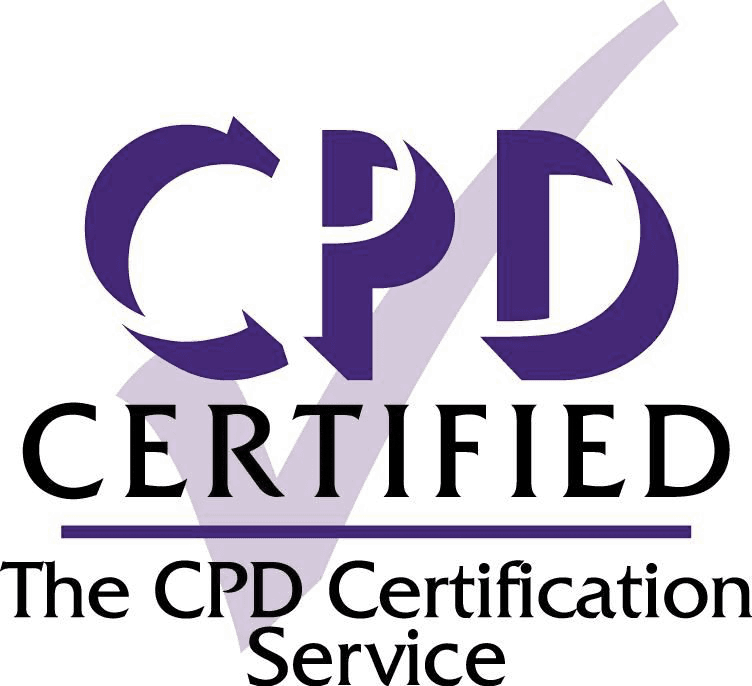

Confidently navigate the intersection of AI, innovation and strategy to create an ambitious, achievable technology revolution within your organisation.
22 weeks,
excluding orientation
7-10 hours per week
entirely online

Weekly modules, flexible learning
1
A comprehensive understanding of AI, including its history, current applications and limitations through an ethical, legal and societal lens.
2
Actionable innovation strategies that are measurable, achievable and aligned with your organisation’s short- and long-term growth objectives.
3
An organisational roadmap to help you creatively lead and implement new technologies and processes in multi-faceted AI-powered environments.

This Oxford AI-Driven Business Transformation Executive Programme is certified by the United Kingdom CPD Certification Service, and may be applicable to individuals who are members of, or are associated with, UK-based professional bodies. The programme has an estimated 190 hours of learning.
Note: should you wish to claim CPD activity, the onus is on you. Oxford Saïd and GetSmarter accept no responsibility, and cannot be held responsible, for the claiming or validation of hours or points.
Over the duration of this online programme, you’ll work through the following modules:
Module 1 Artificial intelligence ecosystem
Deduce the potential trajectory of AI in your organisation or an organisation of your choice from the analysis of the history and case examples of artificial intelligence.
Module 2 AI and machine learning: Understanding the black box
Delve into the mechanics of the three main types of machine learning: supervised, reinforcement, and unsupervised learning.
Module 3 Understanding deep learning and neural networks
Understand what deep learning is and how it is powering the modern approach to AI.
Module 4 Beyond prediction: Making the most of generative AI
Explore the concept of generative AI and the impact of its application on organisations.
Module 5 AI and society
Understand the impacts that AI has on the way we live and work.
Module 6 How to drive AI in your business
Identify the potential business opportunities of AI in a specific context.
Module 7 A primer on innovation
Challenge popular cultural notions of innovation to understand the language and types of innovation, and the principles of building an innovation system.
Module 8 Organising for innovation
Explore organisational design, division of labour, and the structural and cultural elements of a firm that allow innovation to be a routine function.
Module 9 Drivers of innovation: Technology and beyond
Explore models of innovation beyond standard notions of technological change and "disruption" along with the interplay of technologies, market dynamics, and firm capabilities.
Module 10 4IR technology: Ethics and governance
Grapple with the ethics and governance considerations prompted by emerging technologies that integrate across digital, physical, and biological systems.
Module 11 Corporate innovation strategies and platforms
Consider the corporate landscape of innovation and how platforms organise market competition and, in turn, shape the nature of innovation.
Module 12 Innovation in practice
Develop skills in leading for innovation, including implementation in context and the future of innovation, in light of what you have learnt in this programme.
Module 13 Unlocking strategy – The Oxford view
Explore your organisation's strategic potential using the Oxford view.
Module 14 Working with futures – Addressing changing environments
Consider the importance of broader environments and futures in formulating strategy.
Module 15 Making strategy purposeful – Managing plurality
Gauge the plurality of purposes driving your organisational strategy.
Module 16 Engaging players – Developing strategy statements that count
Engage and communicate with a breadth of players.
Module 17 Building partnerships – Collaborating and competing
Leverage the value of collaboration and competition in networked strategy.
Module 18 Broadening strategy processes – Designing new strategy processes
Critically reflect on transforming your strategy processes to be more inclusive and transparent.
Module 19 Strategy into practice – Assembling your playbook
Leverage the broader Oxford view of strategy into your organisation's strategy practice.
Please note that module titles and their contents are subject to change during programme development.
Matthias Holweg
American Standard Companies Professor of Operations Management and Programme Director of the Oxford Artificial Intelligence Programme
Saïd Business School, University of Oxford
American Standard Companies Professor of Operations Management and Programme Director of the Oxford Artificial Intelligence Programme, Saïd Business School, University of Oxford
Matthias is a leading expert in digital operations and the application of artificial intelligence to improve business processes.
As the American Standard Companies Professor of Operations Management he oversees the Technology and Operations Management programmes at Oxford Saïd. He directs two significant initiatives at Oxford: the Oxford Artificial Intelligence Programme, one of the world's largest training initiatives for business professionals, and the AI Ethics, Regulation and Compliance Programme for risk and compliance managers.
With a foundation in industrial engineering, statistics and Lean Six Sigma, Matthias brings a robust problem-solving approach to his work. Prior to joining Oxford, he held faculty positions at the University of Cambridge and was a Sloan Industry Center Fellow at MIT's Engineering Systems Division.
Marc Ventresca
Associate Professor of Strategic Management and Programme Director of the Oxford Strategic Innovation Programme
Saïd Business School, University of Oxford
Marc Ventresca is an economic sociologist in the Strategy, Innovation and Marketing Faculty at Saïd Business School and a Governing Body Fellow of Wolfson College.
Marc's areas of expertise include market and network formation, entrepreneurship, governance, and innovation and technology strategy.
His research and teaching focus on the formation of markets and networks in business and social settings. Specifically, he researches how markets are built and the actors who build them. He is also an expert in the areas of governance, innovation and technology and how they interact with markets and networks.
Trained in sociology and political philosophy, Marc takes a novel approach to researching how markets and networks are formed over time. While many finance colleagues treat market formation as an exit strategy for entrepreneurs who want to realise value from their ventures, Marc sees markets as political and cultural institutions. He uses strategy, sociology, economic theory and organisational theory to understand markets’ existence and underpinnings.
Trudi Lang
Associate Professor in Management Practice and Programme Director of the Oxford Executive Strategy Programme
Saïd Business School, University of Oxford
Trudi Lang is Titular Associate Professor in Management Practice and Co-Director of the Oxford-Hyundai Motor Group Foresight Centre.
Prior to joining the School, Trudi served in positions such as Director of Strategic Foresight at the World Economic Forum and as Consultant for Strategic Foresight at the OECD.
Trudi holds a PhD (DPhil, Management Studies) from the University of Oxford and is a member of the Strategic Management Society and the Academy of Management.
Trudi’s research focuses on strategic reframing and strategy development to help senior executives lead their organisations through turbulent contexts
Richard Whittington
Professor of Strategic Management and Programme Director of the Oxford Executive Strategy Programme
Saïd Business School, University of Oxford
Richard is a leader in the field of Strategy-as-Practice research, having published the first paper in the field (1996).
The Strategy-as-Practice movement has revitalised research on strategy processes, with formally-recognised streams in such leading conferences as the Strategic Management Society, the Academy of Management, the European Group for Organizational Studies and the British Academy of Management.
Richard is author of eleven books, including two influential textbooks on strategy: Exploring Strategy, ranked by the Financial Times teaching power index as the top strategy textbook worldwide, and What is Strategy – and Does it Matter?, past winner of the Management Consulting Association prize for the best management book of the year. He has published in leading journals such as Administrative Science Quarterly, the Journal of Management Studies, Organization Science, Organization Studies, Research Policy and the Strategic Management Journal. His work has received more than 50,000 citations.
“AI is a fascinating technology that is entering every aspect of our work and daily lives. It improves existing products and processes, and also fosters disruptive innovation. We need to embrace it, while also defining its legal and ethical boundaries within our organisations, and society as a whole.”
This Oxford AI-Driven Business Transformation Executive Programme is delivered in collaboration with online education provider GetSmarter. Join a growing community of global professionals, and benefit from the opportunity to:
Experience a flexible but structured approach to online education as you plan your learning around your life to meet weekly milestones.
Enjoy a personalised, people-mediated online learning experience created to make you feel supported at every step.
Earn a certificate of attendance recognising your online programme from Saïd Business School, University of Oxford.